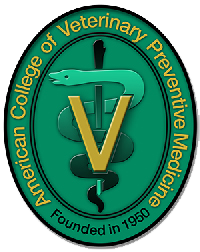
- dvm360 August 2022
- Volume 53
- Issue 8
- Pages: 78
Working together to improve outcomes

The first installment of our new "A Pocket of Prevention" column
Most newly graduated veterinarians are excited (and scared) to perform incredible surgeries, make the weird and elusive diagnosis or touch that special species that inspired their veterinary career. I certainly was! However, it only took a single case of canine distemper, 5 confirmed rabies cases—1 kitten, 3 dogs, and a cow—in my first year out, a case of tetanus in a mandrill baboon, severe malnutrition in a baby spider monkey, and the residual pulmonary damage of chlorine toxicity in some apes for me to convert to a preventive medicine evangelist.
How important is preventive medicine? Or is it preventive care? Is there a difference? Does either one matter in veterinary medicine? The short answer is yes to all of them!
First, let’s address the semantics. Preventive medicine is the practice of promoting preventive health care to improve patient well-being, according to the American College of Preventive Medicine.1 Although they are different, they seek the same goal: a healthier patient or better clinical outcome. For example, a toxic environmental spill can be cleaned up, but the better approach is to prevent the spill to avoid all impact and damage. This example touches on another important component of preventive medicine in that a holistic approach that encompasses rather than compartmentalizes influences on patient well-being is best. One health, anyone?
Preventive medicine is not a new concept. The first government foray into prevention happened in the 14th century with the passage of the first sanitary act in England to provide for the removal of “nuisances.”2 Since then, preventive medicine provides the foundation for public health today. Veterinary medicine also naturally embraces preventive medicine. If you have ever faced a dog with fulminant canine distemper as I did, then you surely appreciate how simple preventive medicine can be when compared with treating clinical disease to resolution. Yet vaccines represent only a single facet of preventive medicine. Epidemiology, environmental health, food safety, toxins, biostatistics, parasitology, and many other fields can all be found under the preventive medicine umbrella.
dvm360® and the American College of Veterinary Preventive Medicine (ACVPM) recently partnered to enhance the visibility of preventive veterinary medicine within our profession. To that end, the Pocket of Prevention column will be a recurring piece in dvm360® publications. These articles will highlight issues in veterinary preventive medicine as described by diplomates of one of the most professionally diverse specialty colleges—ACVPM. There will be new pearls to help you face that exciting (or scary) situation clinically or otherwise professionally.
To learn more about the ACVPM, check out
Jenifer Chatfield, DVM, DACZM, DACVPM, is staff veterinarian at 4J Conservation Center, an instructor for FEMA/DHS courses, and a regional commander for the National Disaster Medicine System Team.
References
- About preventive medicine. American College of Preventive Medicine. Accessed July 30, 2022. https://www.acpm.org/about-acpm/what-is-preventive-medicine/
- Preventive medicine. Encyclopedia Britannica, February 10, 2022. Accessed July 30, 2022. https://www.britannica.com/science/preventive-medicine
Articles in this issue
over 3 years ago
Veterinary Heroes™ 2022 winner: Alexandre Contrerasover 3 years ago
Veterinary Heroes™ 2022 winner: Randy Acker, DVM, DACVSover 3 years ago
Questions and answers about ransomwareover 3 years ago
Is there a time and place for opinions?over 3 years ago
Veterinary Heroes™ 2022 winner: Jennifer Conrad, DVMover 3 years ago
Can telehealth improve your clinic’s workflow?Newsletter
From exam room tips to practice management insights, get trusted veterinary news delivered straight to your inbox—subscribe to dvm360.




